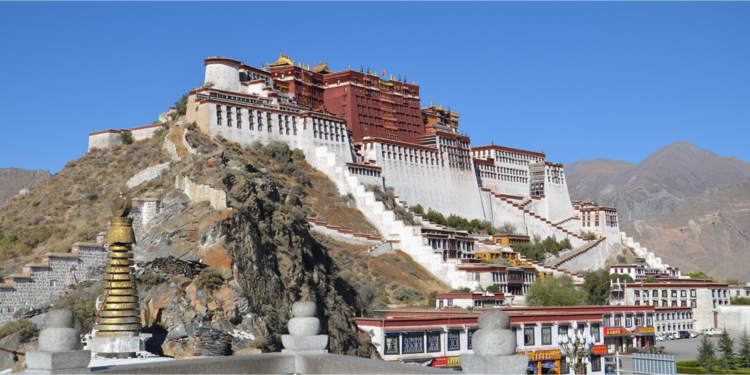
By Steve Sailer
11/10/2012
From the NYT:
Many Chinese Intellectuals Are Silent Amid a Wave of Tibetan Self-ImmolationsBy ANDREW JACOBS
BEIJING — In a gruesome act of resistance that has played out dozens of times in recent months, six young Tibetans set fire to themselves this week, shouting demands for freedom as they were consumed by flames. On Friday, for the second day in a row, thousands of Tibetan students took to the streets in the northwestern Chinese province of Qinghai denouncing “cultural genocide” and demanding an end to heavy-handed police tactics, exile groups said.
Here in the nation’s capital, where Communist Party power brokers are presenting a new generation of leaders, the outgoing president, Hu Jintao, made no mention on Thursday of the anger consuming China’s discontented borderlands during his sprawling address to the nation.
Asked by foreign reporters about the escalating crisis, delegates to the 18th Party Congress blamed the Dalai Lama, the exiled spiritual leader, or inelegantly dodged the question altogether. “Can I not answer that?” one asked nervously.
But while Tibetan rights advocates have long been inured to impassive officials, they are increasingly troubled by the deafening silence among Chinese intellectuals and the liberal online commentariat, a group usually eager to call out injustice despite the perils of bucking China’s authoritarian strictures.
On Twitter, where China’s most voluble critics find refuge from government censors, the topic is often buried by posts about persecuted dissidents, corrupt officials, illegal land grabs or other scandals of the day. Since the self-immolations began in earnest last year, few Chinese scholars have attempted to grapple with the subject.
“The apathy is appalling,” said Zhang Boshu, a political philosopher who lost his job at the Chinese Academy of Social Sciences three years ago for criticizing the government’s human rights record.
With a mounting toll of 69 self-immolations, at least 56 of them fatal, many Tibetans are asking themselves why their Han Chinese brethren seem unmoved by the suffering — or are at least uninterested in exploring why so many people have embraced such a horrifying means of protest.
Perhaps because the Han Chinese don’t see themselves as the "brethren" of the Tibetans? The vast majority of Han think of Tibetans the way increasing majorities of Israelis think of West Bank Palestinians as Israel’s German cultural heritage slowly dwindles.
This is a useful reminder that the vast majority of the non-European world is Rightist in the sense current in the Anglosphere and Europe of being ethnocentric and majoritarian: the Chinese, the Muslims, and so forth.
Is there any part of the non-Euro world that is anti-ethnocentric and pro-minoritarian? Kerala in India, maybe? Probably not, but I don’t see a lot of better candidates.
Rather than the mean Rightist Euro-white majority keeping down the Leftist minorities of the world, the real picture on a global scale is of a nice Leftist anti-ethnocentric white minority in a world increasingly dominated by not nice ethnocentric and majoritarian Rightist nonwhites.
I've sometimes wondered if the white leaders of American prestige colleges sort of grasp this deep in the unarticulated parts of their minds and they hope that they can somehow inculcate niceness in the Chinese (and the rest) before the Chinese totally push us aside.
Unfortunately, it’s such a triple-bankshot approach: let’s have Chinese applicants write admissions essays about how they have been discriminated against by the White Male Power Structure ever since their family moved from China to San Marino, and then we'll make sure that we have lots of classes that emphasize how horrible was the Chinese Exclusion Act of 1882, and, hesto-presto, they'll grasp the secret unspoken message that the Chinese should be nice to Tibetans … and to us white people when the Chinese eventually have the global whip hand.
It’s a foolproof plan!
This is a content archive of VDARE.com, which Letitia James forced off of the Internet using lawfare.